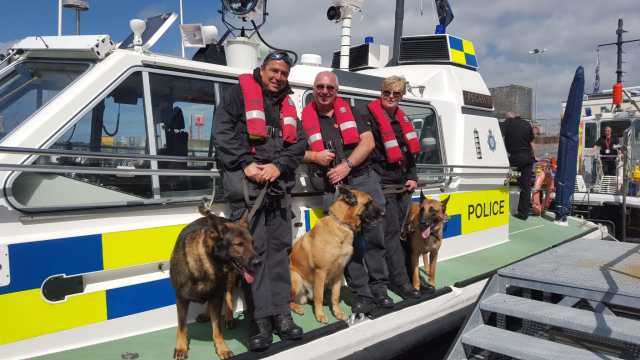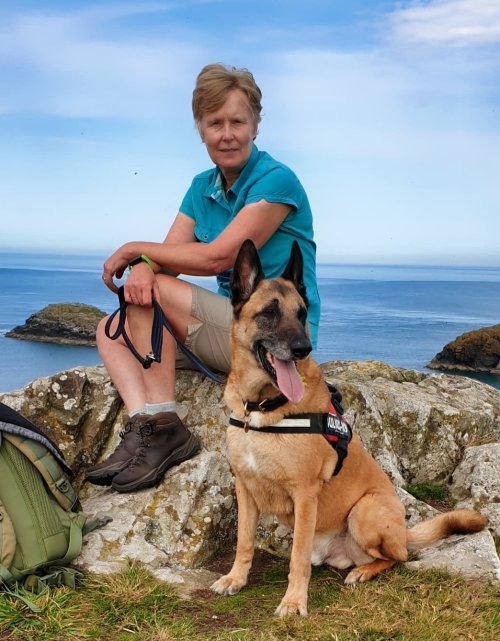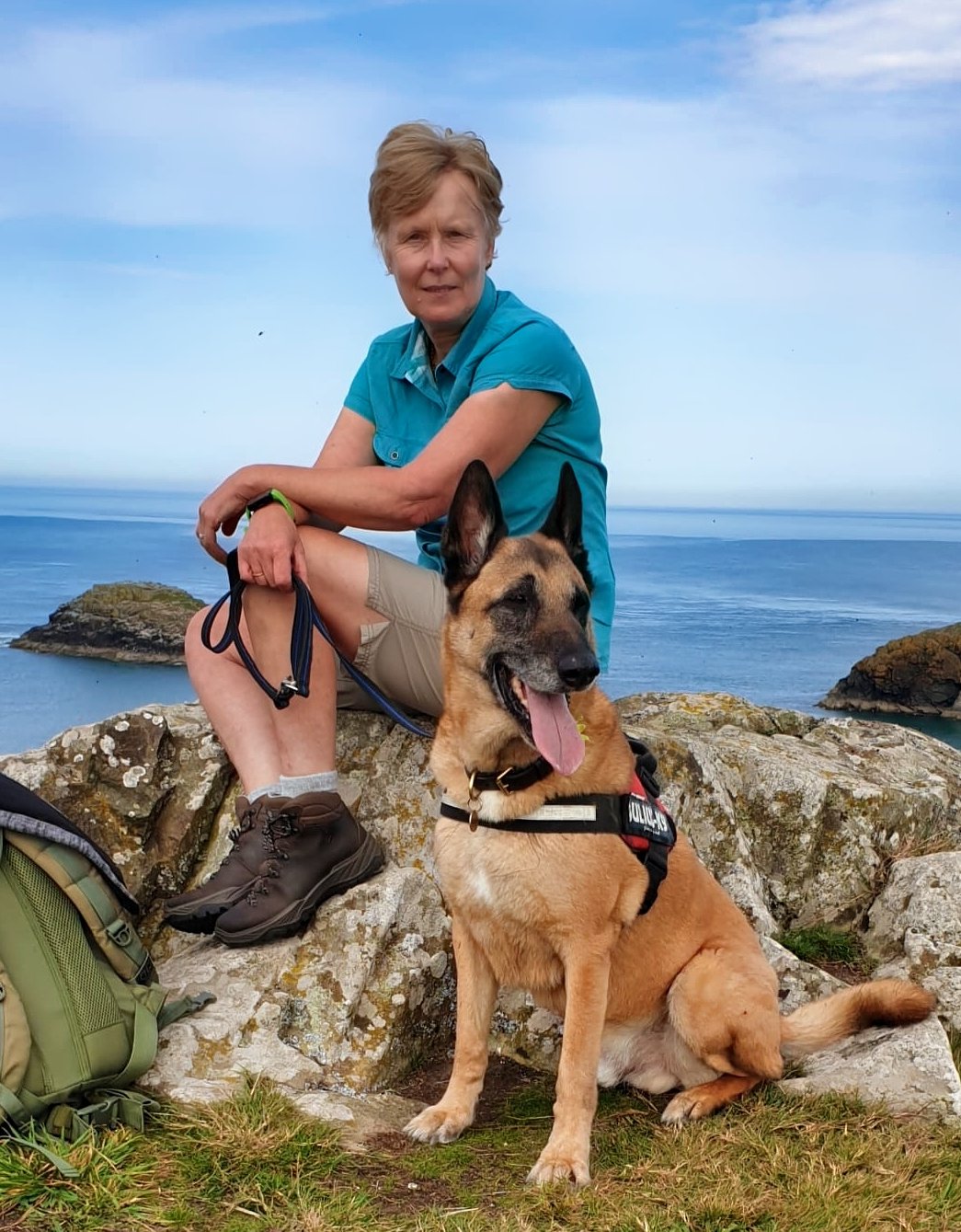
A retired Ministry of Defence Police dog was saved thanks to his quick-thinking owner and the financial support of a charity.
Belgian Malinois Flint, now 11, was bred by the Ministry of Defence Police Dog Section at HMNB Devonport in Devon; both of his parents were police dogs. He was matched with his handler, Karen Crossley, at nine weeks old in December 2010, and the duo spent six years keeping the Navy’s nuclear submarines secure.
Karen, 57 – who served with the MOD Police for 34 years, 30 as a dog handler – said: “Flint has lived at home with me ever since!”
But, following his retirement in 2018, Flint needed support from UK dog welfare charity the Thin Blue Paw Foundation after falling seriously ill and requiring life-saving surgery.
On 20 June, Flint suddenly began acting strange. Karen said: “Flint was asleep when he got up with a start and rushed outside. His back was hunched and he was trying to be sick; I could see his stomach was starting to bloat.
“Luckily our vet is only a five-minute drive away and we rushed him there. The vet said she thought he had a twisted stomach and that he’d need an operation as soon as possible but he was already going into shock.
“I had to kiss and hug him and say goodbye; at his age, the operation was a huge risk. But I had to give him a chance. It was touch and go, we had no idea if he’d make it.”

The vets finally called Karen at 1am to let her know that Flint had pulled through and the surgery had been a success. He stayed at the vets for two days before returning home to recover.
“We don’t know why it happened but I understand that when they’re laying down gas can build up and cause their stomach to twist,” Karen said. “I’m just so relieved that he made it through and that we got to bring him home.”
“We set up the Foundation because we were worried that many of these canine heroes would miss out on life-saving and life-changing treatment because their owners couldn’t afford it.”
But now Karen, who is retired and lives in Launceston, Cornwall, had to find £2,000 to pay the emergency vet bill for Flint, who is uninsured due to his working past. Luckily, the retired working dog is registered with the Thin Blue Paw Foundation; a UK-based organisation that provides financial assistance and support to those who take on retired police dogs.
Charity trustee Gemma Wardell said: “We set up the Foundation because we were worried that many of these canine heroes would miss out on life-saving and life-changing treatment because their owners simply couldn’t afford it.
“What many people don’t realise is that when these dogs retire they don’t get a pension, like us, and they’re often uninsurable due to their strenuous working past so the responsibility falls to their owners to finance them.
“Having led busy, active working lives these dogs are often more susceptible to certain health problems but, just like our pets, they can also be the victims of accidents or fall ill in later life and without the security net of insurance, this was hugely worrying for their owners. But we’re here to ensure they get the treatment they need and to bring peace of mind to their adopters.”
Flint had dedicated six years of his life to his work at Devonport, following 18 months of training, having qualified as a general purpose police dog in March 2012.
“He spent his whole working life at Devonport where we patrolled the dock areas where the nuclear submarines underwent repairs and refits, and the seawalls where the naval ships would berth,” Karen explained.
The duo also carried out patrols within HMS Drake – the Navy’s accommodation – and would assist with securing buildings, anti-social behaviour incidents and support Devon and Cornwall Police with certain response calls or large-scale incidents or events.
Flint even met a member of the Royal Family when Prince Charles came to visit HMNB Devonport to meet representatives.
“Prince Charles not only met him but gave him a pat on the head!” Karen recalled.
Flint retired in March 2018 and Karen retired almost 18 months later.
“He took to retirement well and enjoyed staying at home with my husband and my other retired Belgian Malinois, Jess, while I continued to work with my explosive search dog, cocker spaniel Max, and my new drugs detection dog, Whisky.
“He deserves to have the best life now he’s retired and I’m committed to making sure he gets that. But I couldn’t do it without the Thin Blue Paw Foundation and I’m so grateful to them for their support and for saving Flint’s life.”
Photo captions: Pic1: Flint (centre) with fellow hero canines and other colleagues. Pic 2: Flint and owner, and former handler, Karen.
